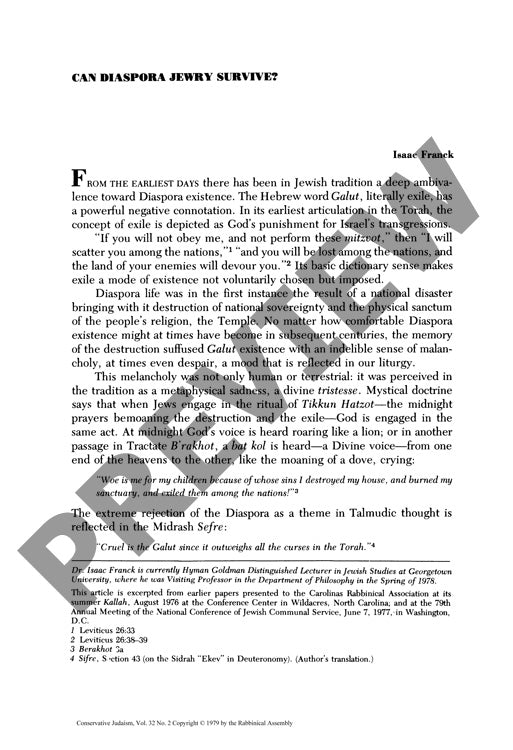Can Diaspora Jewry Survive
Couldn't load pickup availability
Throughout Jewish history, the survival of Diaspora communities has hinged on a delicate balance between integration and distinctiveness - a tension that remains critical for contemporary Jewish identity. Ancient biblical, Talmudic, and Midrashic sources reveal a fundamental ambivalence toward exile (Galut), with competing views of Diaspora as either divine punishment or an opportunity to disseminate Jewish teachings globally. Historical-theological analysis demonstrates that successful Diaspora communities, like the 1,500-year Babylonian settlement, maintained their continuity through preserved language, names, social patterns, and religious observance. In contrast, the Alexandrian Jewish community's rapid assimilation and disappearance within 250 years serves as a cautionary example. Modern American Jewry faces remarkably similar challenges to those that led to Alexandria's dissolution, including erosion of linguistic heritage, name alterations, increasing divorce rates, and cultural absorption into mainstream society. In the post-Holocaust era, Diaspora survival depends not only on sustaining Jewish differentness and religious commitment but also on nurturing a symbiotic relationship with Israel - a dynamic that may determine the future viability of Diaspora Jewish life.

More Information
-
Physical Description
-
Publication Information
Published 1979
ISBN
-
Publication Credits
Isaac Franck

